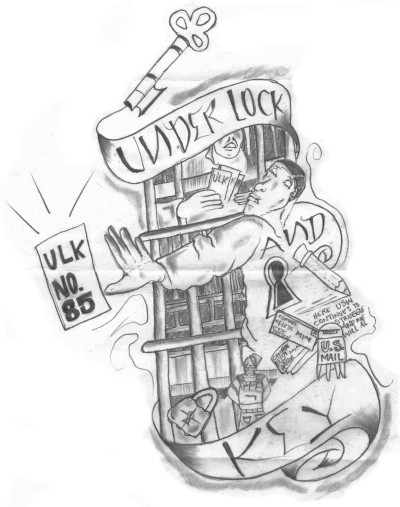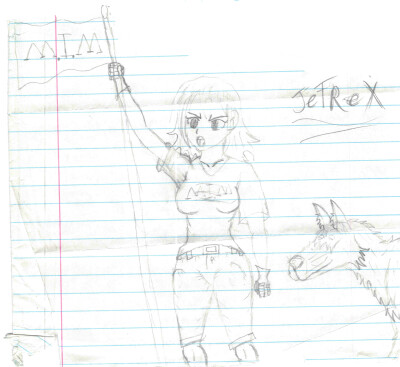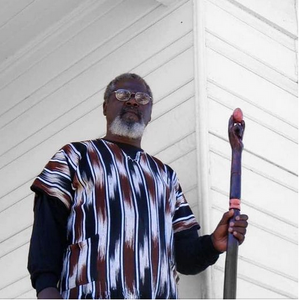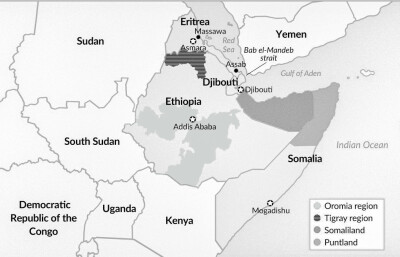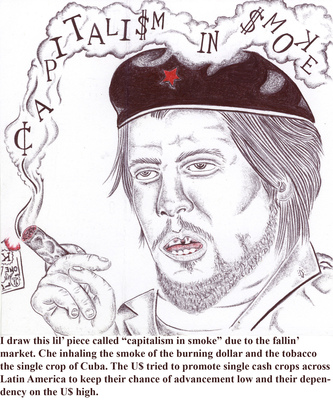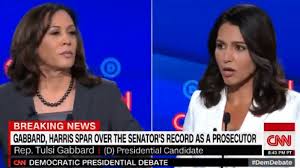
Maoist Movie Review: Does Ape Nature Differ from Humyn Nature?
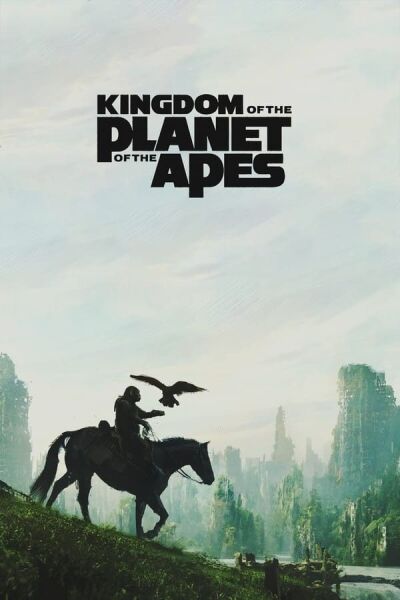
Kingdom of the Planet of the Apes
10 May 2024
PG-13
Spoilers
A main theme throughout both series of Planet of the Apes movies is the question of whether Apes differ from so-called “humyn nature.” In the first series (produced 1968-1972) especially, humyn nature is blamed for the hubris of nuclear weapons that brings humyns’ downfall. In this latest movie of the new series (produced 2011-2024), apes have been setback in this search for truth, but perhaps this can be explained by the very existence of class struggle that they share with humyns.
Kingdom of the Planet of the Apes (2024), the fourth film in the modern Planet of the Apes film series, is the first to take us into the future a few generations after the events that led apes to become competitors with humyns for dominating planet Earth. In it we see glimpses of the emergence of class society, in the form of slavery. But it is a slave society that is shaped by a relationship to the formerly dominant humyns that still reflects a colonial relationship in many ways.
The Eagle Clan, who are the center of the film, live in a primitive clan society, with elders who set the laws that are taught to the young and passed down via tradition. Later in the film, we encounter a larger ape society that is a kingdom led by King Proximus, that has absorbed many clans and uses them as slaves. It is not clear that the slaves produce material wealth for the slavemaster class of the kingdom, as the film only shows them working to break into an old humyn military bunker to extract the technology. But someone must be producing the food, tools and weapons for the soldiers who run the kingdom.
Proximus claims to be the new Caesar. Caesar was the founder and leader of the apes in the first three movies, and was also a king figure. But Caesar was a benevolent leader who fought and worked alongside the others. A virus gave Caesar super-ape intelligence to lead the apes to liberation from humyn society.
Within 10 years of the events of Rise of the Planet of the Apes (2011), Caesar had already begun to learn that apes have the same tendencies as humyns as he had to ally with a humyn to combat a rogue ape attempting to usurp eir control of ape city to wage war on humyns.
We previously discussed the themes of integrationism in the newer series, in contrast to the older series that takes a more scientific approach to uniting humyns and apes through struggle and re-education. While the inability of apes to build a a lasting harmonious society may appear pessimistic, we’d say it is realistic; accurately reflecting the myth of humyn or ape nature despite the producers’ intentions.
The original series (produced 1968-1972) ends with a humyn ally remarking that the apes have finally become humyn after the first ape murder of another ape. This story line is framed more as a biblical original sin story than class struggle. But in both series the first ape-on-ape murder occurs because of the struggle between the apes who want to wage war to annihilate all humyns and those who do not. The question the producers seem to be asking is do apes have a war-like nature like humyns supposedly do. Despite the revolutionary themes of the first series, it largely reinforces this concept of humyn nature.
When we criticize the concept of humyn/ape nature, we are not criticizing the “natural” we are criticizing the metaphysical view of an unchanging phenomenon. In other words, “natural” itself is a myth in many ways, in other ways “natural” could be dialectical materialism and the scientific method that explains the world around us. As dialectical materialists we understand all things to be in a constant state of change motivated by the contradictions within that thing; the class struggle in society being the prime example of this in Marxist thought.
Observed by humyns in our reality, chimpanzees and gorillas have one leader who is a male silverback. While bonobos have an alpha male role as well, the alpha female plays the more determinate role. Interestingly, the king Proximus is a male bonobo. Meanwhile orangutans in real life tend to be more solitary, which is reflected in this film with Racka being a loner and no other orangutans being part of Proximus’s kingdom. As we know, and as Engels lays out in The Origins of the Family, Private Property and the State, humyns have gone through various social structures; from more collective matriarchal societies to the more modern hierarchical patriarchal societies, and these structures have changed to adapt to changing modes of production.
In our world, we suspect humyn societies have changed more over the last ten thousand years than other great apes, because their relationship to the rest of the natural world has changed more through gaining knowledge and technology. Therefore in the new series of movies we would expect apes to go through a very similar evolution of hierarchies and class society as humyns did as they change their relationship to the production of their material needs. This is reflected in the kingdom that operates as a primitive system of slavery, the earliest class system of humyns as well.
However, the evolution of ape society is colored by the existence of a previous, advanced humyn society. Learning from humyn books and accessing humyn armories full of technology are ways that Proximus attempts to make a leap in ape knowledge and technology. As ey does this, Proximus maintains a line that humyns cannot be trusted, and apes must work together, even though this is applied cynically as ey is shown to happily sacrifice the lives of many apes in eir own attempts at power through humyn technology.
The main character in Kingdom is Noa, a member of the Eagle Clan, whose father was a master of training eagles. Noa learns about Caesar for the first time from the last true follower of Caesar after the rest of the Eagle Clan has been captured by Proximus. Before this, Noa had no knowledge of the history of humyns or apes; perhaps because of eir age. But Noa also states that eir elders did not want to know such things and remained ignorant on purpose through isolation.
The major transformation that Noa makes is to reject the idea that law is handed down from some higher power. Ey does this overtly by rejecting the laws of the king, and more subtly by pursuing knowledge eir elders forbid. This is the transformation of thought that humyn society went through during its transition to capitalism, when liberalism, plurality, democracy and the pursuit of scientific knowledge rose to replace ways of thought that were more stagnant, based more in idealism and following a god-king. So we see Noa make a shift towards materialism, that we expect will transform the Eagle Clan as it rebuilds its village. But Noa’s understanding of ape nature at the end of the movie still seems behind that of Caesar’s, generations ago. We see this type of pre-scientific thinking among our comrades today who believe the white man is literally the devil and the Black man/humyn is god. Like Noa, they’re on the right side, but are guided by idealist thinking that can easily lead them astray. Of course, we all struggle with idealism and subjectivism, which might be considered part of the “nature” of beings that can reason with limited knowledge and perspective. Part of the power of the vanguard party, as layed out by Lenin, is its ability to produce a more scientific approach to social change by pooling experience and knowledge production at group level for a whole class.
In our review of Dawn of the Planet of the Apes (2014) we compare the Caesar loyalists to the Gang of Four in China, who were those in the leadership who both understood and represented the Maoist line after Mao’s death. The Orangutan, Raka, would be like a young persyn in China today who has deeply studied Mao and Chinese history but has no real experience in building socialism and no one to help em put it into practice. Proximus might be compared to the revisionists in power in China, exploiting the people while trying to strengthen China against the U.$. imperialists all in the name of “Marxism” (or “Caesar”).
The problem that Noa faces in determining what the right path is, and what Caesar was really about, becomes a question of trust and judging what is morally right. In contrast, we can judge the correct Maoist path by studying history, and putting science into practice. While Noa’s path in this movie echoes Caesar’s in the previous one, this is only because they both tried to help their own people. While serving the people is part of the communist road, we must be more than do-gooders to end oppression, we must have a scientific understanding of society, what forces are at play within it, how it is changing and how we can shape that change.
In practice it seems that Noa may have acted against the interests of Apes overall by eir alliance with the humyn, Mae. Another sequel will probably reveal this. This is where the colonial parallels come in. Mae is part of a humyn society that is no longer dominant, but still possesses historical knowledge and technology that gives them a great advantage. The Eagle Clan parallels many primitive groups in humyn history that have encountered colonialists and allied with them against other known enemies, perhaps seeing the colonialists as friends and allies, before being subjugated by them in turn. In this way Proximus proves more correct in eir distrust of the humyns and calls for ape unity, despite coming from an exploiter class perspective.
This is why in a United Front the proletariat needs its own party to represent our class, and to act independently of other classes. It must be a party based on science, that can see all sides of the situation. At this slave stage of ape society there is no such leadership available and therefore no basis for forming principled alliances with either the humyns or the exploiter class of apes.
The movie ends with Noa asking Mae if humyns and apes can ever live together in trust. The ending hints that such a future is far off to say the least. A theme that was more prominent in the original series is the political question of if the oppressed rise up against white Amerika, will they wipe out white Amerika or live harmoniously side-by-side. In the original series, we see many years after the ape revolution that such a reality is still in the works. There is still distrust, as some war-mongering humyns still exist in the city, and many apes remember the past oppression by humyns. While we draw some analogies above about the latest movie, there are no real revolutionary story lines like the original series, which showed the joint dictatorship of other great apes over humyns and discussed the need for a long period of transforming society and its citizens to build the trust necessary for peaceful coexistence. Of course, the dictatorship of the proletariat is not just about trust building, it is about continuing the class struggle to eliminate all class differences – the internal contradictions of society that lead to oppressive relationships between groups. That is the only basis upon which a true communist society can be built. Something none of the Planet of the Apes movies have brought us to yet.
Notes:
1. Wiawimawo, August 2011, Prison Themes Central
to New Planet of the Apes Story, Under Lock & Key Issue 23.
2.
Wiawimawo, July 2014, Maoist Movie Review: Dawn of the Planet of the
Apes, Under Lock & Key Issue 40.
3. Wiawimawo,
July 2017, War for All of Apekind Trumps Revenge, Under Lock & Key
Issue 58








